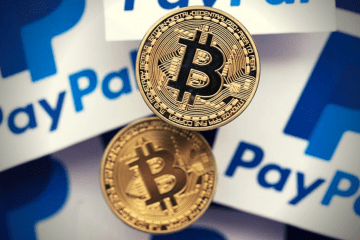How the Fed buying junk bonds will affect Bitcoin
The Fed is planning to buy “junk” bonds to combat a coronavirus-led economic downfall. But experts have mixed feelings about it.
In brief:
- The US Fed is extending fiscal aid, promising to buy up “junk” bonds.
- Experts believe further aggressive stimulus will bolster Bitcoin’s utility.
- But they are worried that the economy might bring Bitcoin down with it.
In a last-ditch attempt to sustain the waning economy, the US Federal Reserve has unveiled plans to buy “junk” bonds—much riskier investments. Commentators argue that while this might make the case for Bitcoin, it could threaten its price.
The US Fed has extended stimulus efforts, adding $2.3 trillion in economic support in an effort to offer “relief and stability,” according to Chairman Jerome Powell.
This includes provisions for small and medium-sized businesses in the form of a $600 billion lending fund as well as purchasing $500 billion of short-term notes from states, counties, and cities around the country.
However, the real kicker is the commitment to buy “junk” bonds—so-called due to their issuer’s propensity to default. The Fed’s provision is intended to act as a life raft for companies downgraded in the wake of the economic implosion.
According to Charles Bovaird, vice president of content at Quantum Economics, this “unprecedented” move may play directly into the hands of Bitcoin and its propagators.
“The Fed’s move to purchase junk bonds, and help prop up so-called fallen angels, is unprecedented,” Bovaird told Decrypt. “Further, it could easily be interpreted as a move to help support the non-investment-grade bonds of companies that have been trading at fundamentally inflated values.”
Bovaird argues that perceived overreach of the Fed may further undermine faith in the financial system.
“A major impetus for creating Bitcoin was developing a new economic system that can function independently of the banks and the government,” he says, “Many people don’t trust either, and the Great Financial Crisis gave them a particularly good reason to be distrustful.”
Toeing a similar line, Mati Greenspan, founder of Quantum Economics, touched upon the Fed’s swelling balance sheet, tweeting, “The most worrying part is the decision to start buying junk bonds from the market. The death of capitalism is complete.”
Economist and co-founder of Real Vision Group, Raoul Pal, similarly highlighted a correlation between aggressive fiscal stimuli and Bitcoin usage.
“The more extreme the monetary action globally, the more compelling the case for Bitcoin over time.” Pal explained to Decrypt.” There is likely a lot more to come from the central banks in the coming 12 months or so.”
However, Pal harked back to the Bitcoin’s quasi-relationship with the traditional markets caveating that an ongoing correlation could spell trouble.
“The key question is whether the liquidation phase of markets has finished. If not, Bitcoin could well struggle in the short term,” he warned.
While the Fed’s latest efforts to resuscitate the economy may boost Bitcoin’s rationale, there may be another benefit to the aggressive tactics. As further aid is introduced and the broader markets bounce back in the short term, the surplus stimulus could trickle into the crypto markets.


